BEOH Conference
The Belgian One Health network (BEOH) organized a virtual Belgian One Health conference on the 23th of November 2021. The BEOH network invited Belgian scientists, policy makers and civil society to discuss how the European Green Deal can be best supported in Belgium from a One Health perspective.
The current COVID-19 pandemic, but also other disease outbreaks of animal origin such as SARS and Ebola, and their dramatic societal and economic costs show the importance of applying a One Health approach across sectors, as a matter of urgency.
The European Green Deal is a new growth strategy that aims to transform the EU into a fair and prosperous society, with a modern, resource-efficient and competitive economy where there are no net emissions of greenhouse gases in 2050 and where economic growth is decoupled from resource use. It also aims to protect, conserve and enhance the EU's natural capital, and protect the health and well-being of citizens from environment-related risks and impacts. At the same time, this transition must be just and inclusive. Belgian experts discussed various themes such as the farm to fork strategy, circular economy, biodiversity, and climate change.
This conference aimed to stimulate a greater cooperation and synergy between Belgian experts working in various fields, policy makers and civil society in order to enable and operationalize a One Health approach in support of the European Green Deal, and to strengthen and enlarge the BEOH network and its relevance to science, policy and practice.
Speakers included:
- Dr. Laetitia Lempereur, Research Coordinator at the Belgian Federal Public Service Health, Food Chain Safety and Environment
- Dr. Hans Keune, Belgian Biodiversity Platform, INBO, University of Antwerp
- Mr. Tony Agotha, Senior Diplomatic Expert to European Commission Executive Vice-President Frans Timmermans
- Ms. Rada Chehlarova, Team Leader, DG Health and Food Safety, European Commission
- Ms. Katie Vermeersch, Attache 'One-Health', AFSCA-FAVV
- Mr. Roland Moreau, Representative of environmental NGOs at the CESE Wallonia Board Member of Club of Rome -EU Chapter
- Mr. Arnaud Goessens, Senior Manager for EU Policy, WCS EU
- Ms. Els Martens, Belgian Federal Public Service Health, Food Chain Safety and Environment
- Mr. Liviu Stirbat, Deputy Head of unit, DG Climate Action, European Commission
- Dr. Sofie De Broe, Scientific coordination, Sciensano
- Ms. Zakia Khattabi, Belgian Minister of the Climate, the Environment, Sustainable Development and Green Deal
- Dr. Frank Vandenbroucke, Belgian Deputy Prime Minister and Minister for Social Affairs and Public Health
- Mr. Vincent Van Quickenborne, Belgian Deputy Prime Minister and Minister of Justice and the North Sea
- Mr. David Clarinval, Belgian Minister of the Middle Class, SMEs, Self-employed, Agriculture, Social Integration and Urban Policy
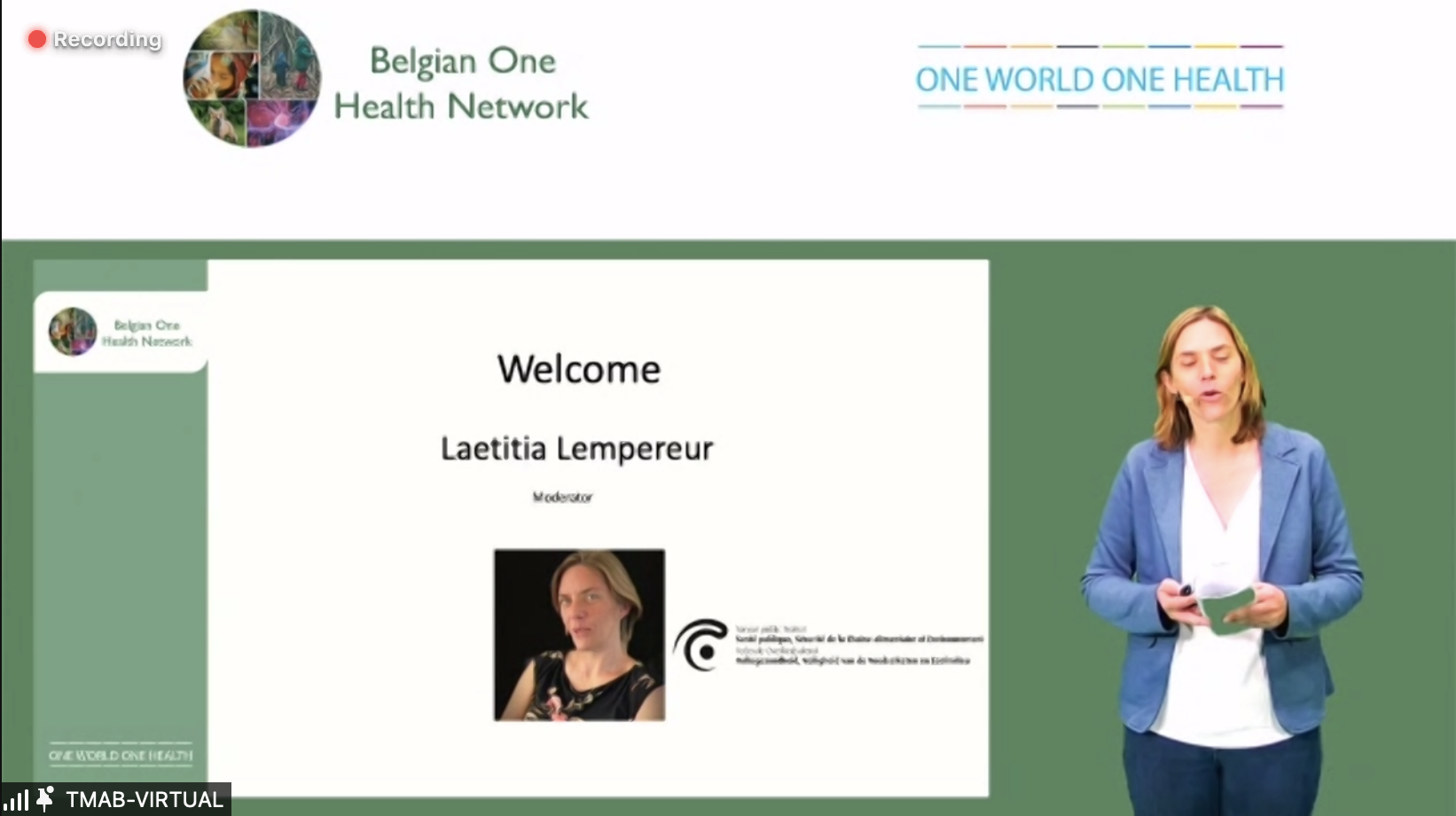 Dr. Laetitia Lempereur opening the Belgian One Health Conference
Dr. Laetitia Lempereur opening the Belgian One Health Conference
Mr. Arnaud Goessens, Senior Manager for EU Policy at WCS EU, provided a brief overview of the EU Biodiversity strategic plan within the EU Green Deal and its relevance to the implementation of a One Health approach. The EU Biodiversity Strategy states that “the EU will enhance its support to global efforts to apply the One Health approach, which recognises the intrinsic connection between human health, animal health and healthy resilient nature”. This will require breaking down the silos and building new ways of working between the various DGs of the European Commission, including DG ENV, DG INTPA, DG SANTE, and others.
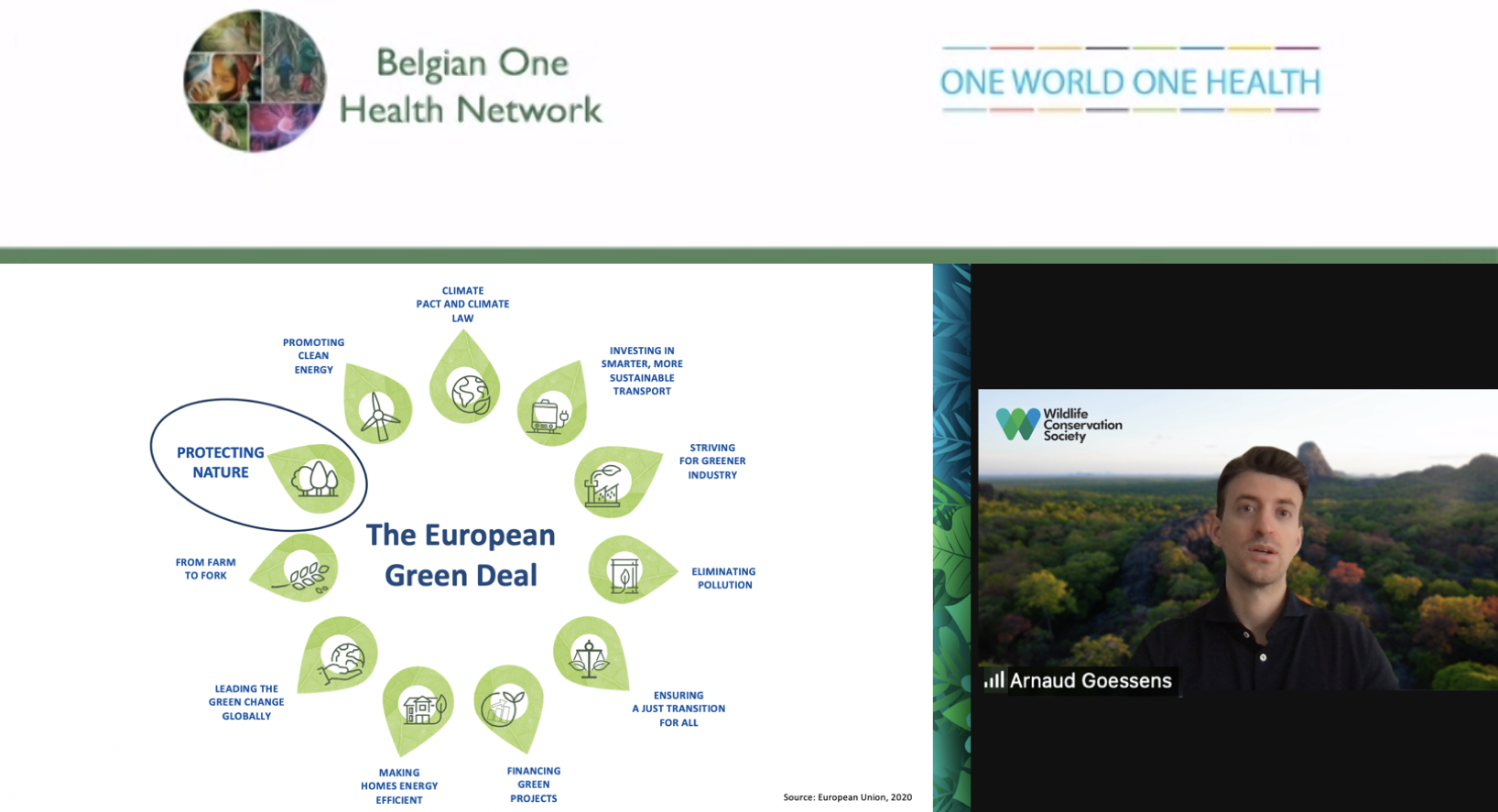 Arnaud Goessens, WCS EU, presenting at the Belgian One Health Conference
Arnaud Goessens, WCS EU, presenting at the Belgian One Health Conference
The EU biodiversity strategy also states that “a better protection of natural ecosystems, coupled with efforts to reduce wildlife trade and consumption, will also help prevent and build up resilience to possible future diseases and pandemics.” In particular, protecting forests with high ecological integrity will not only contribute to biodiversity protection, but it will also help mitigate climate change by reducing carbon levels in the atmosphere while helping to reduce risks of future pandemics of zoonotic origin by shrinking the human-wildlife interface.
The commercial trade and sale of live wildlife for human consumption — both legal and illegal, particularly birds and mammals– also constitute a significant risk. This trade and associated markets bring together domesticated and wild animals with their pathogens, facilitating cross-species transmission. The current COVID-19 pandemic shows the importance to protect nature and rethink the way we treat and deal with wildlife.
Several EU initiatives help address the global biodiversity crisis:
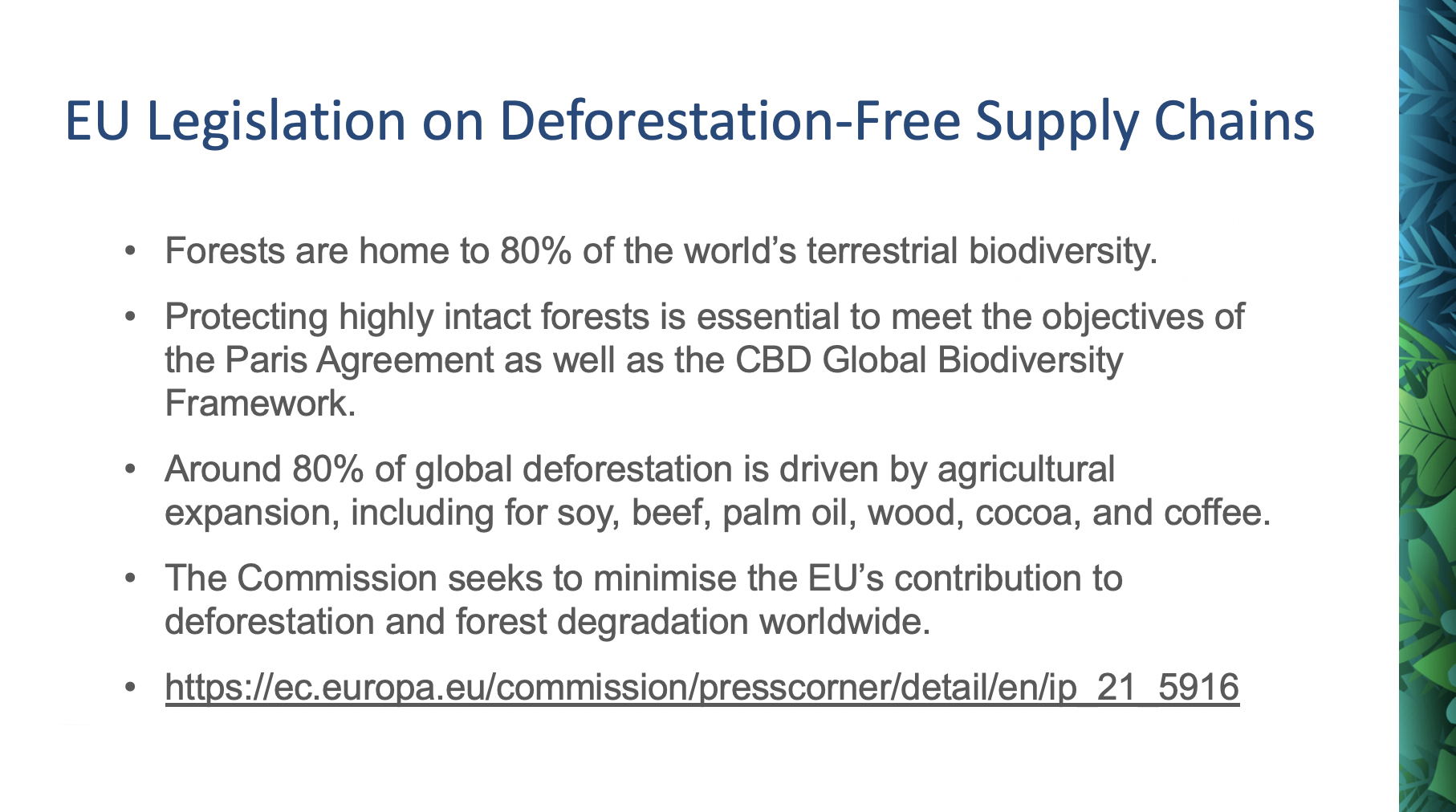
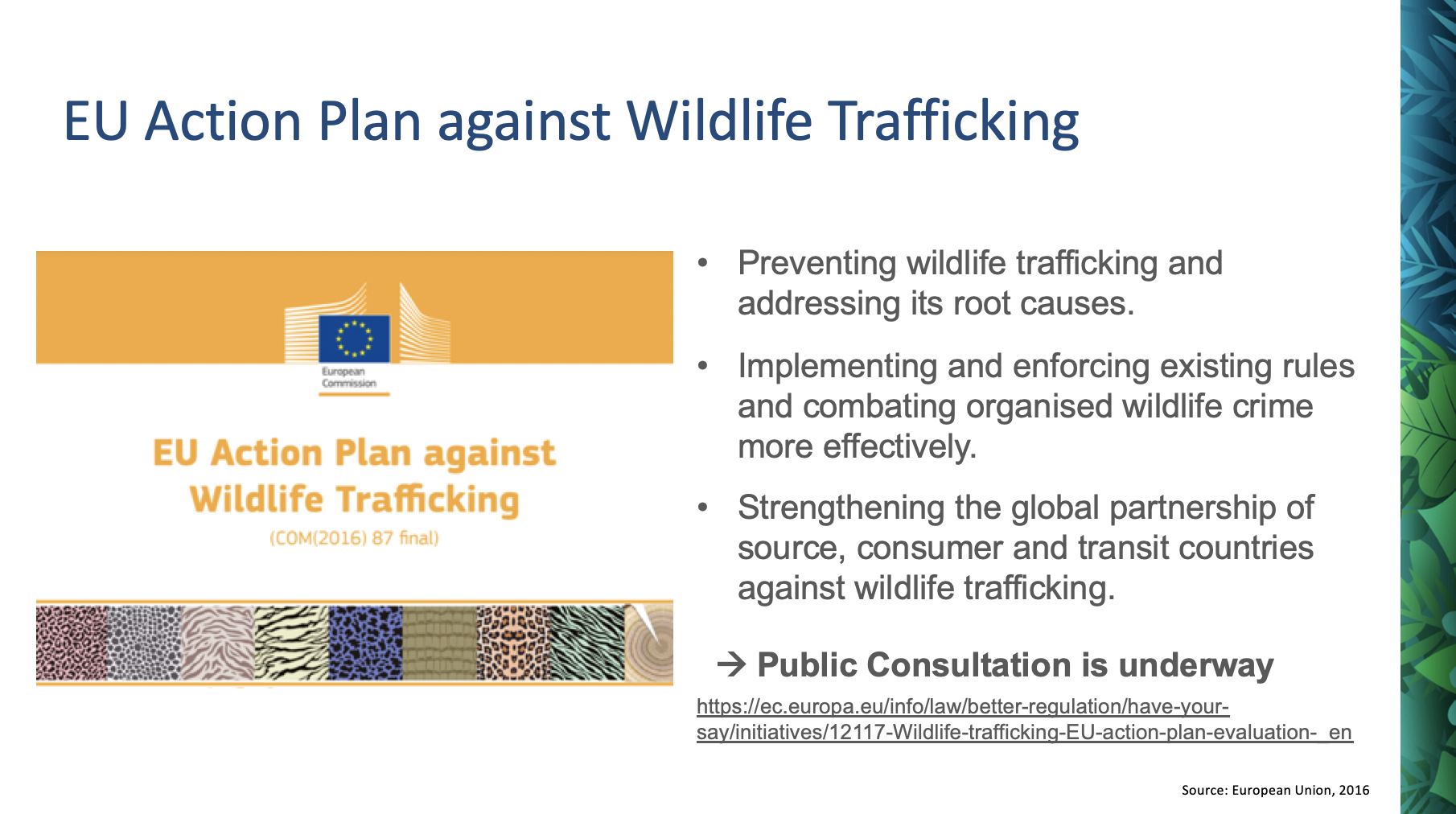
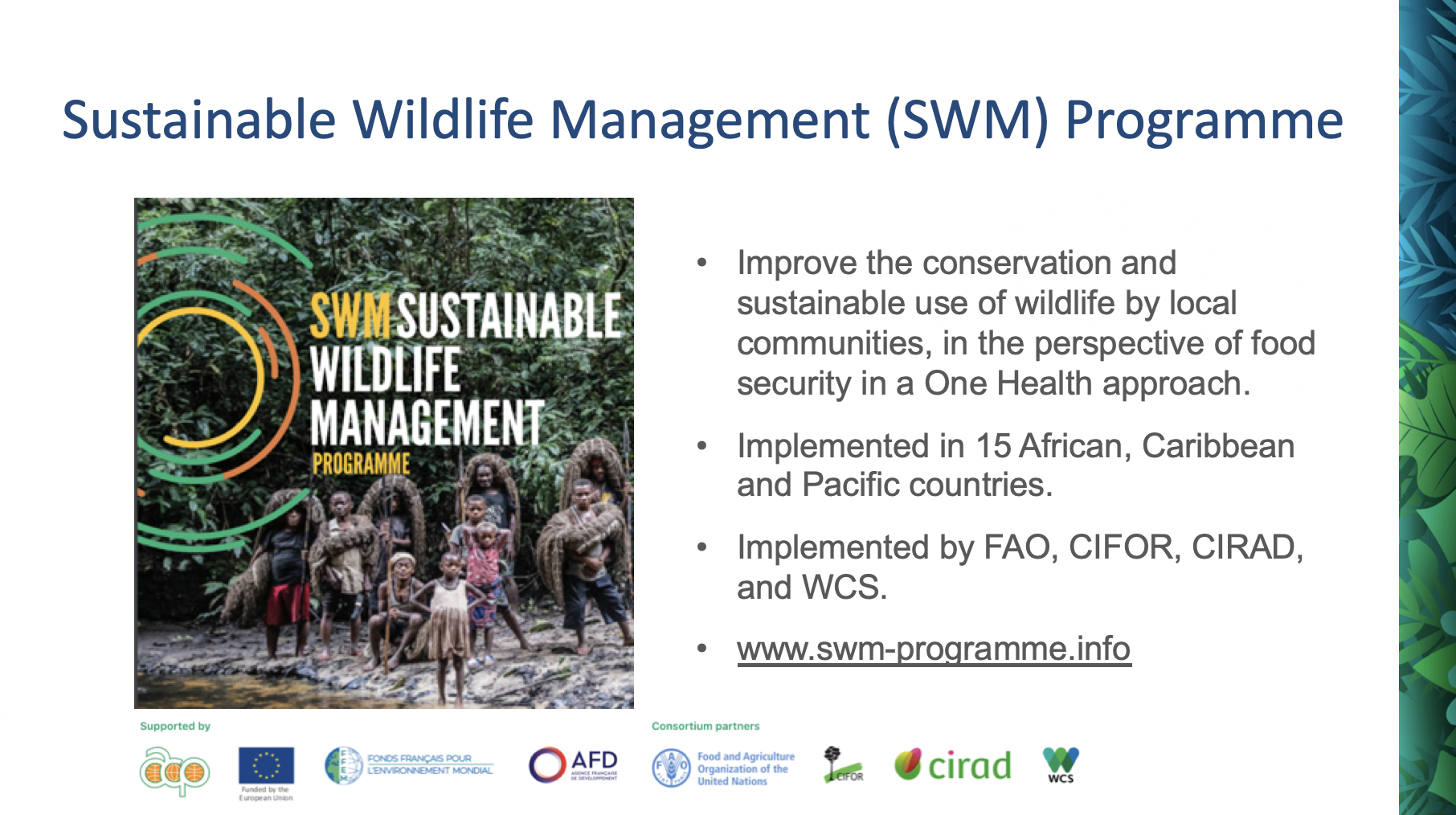
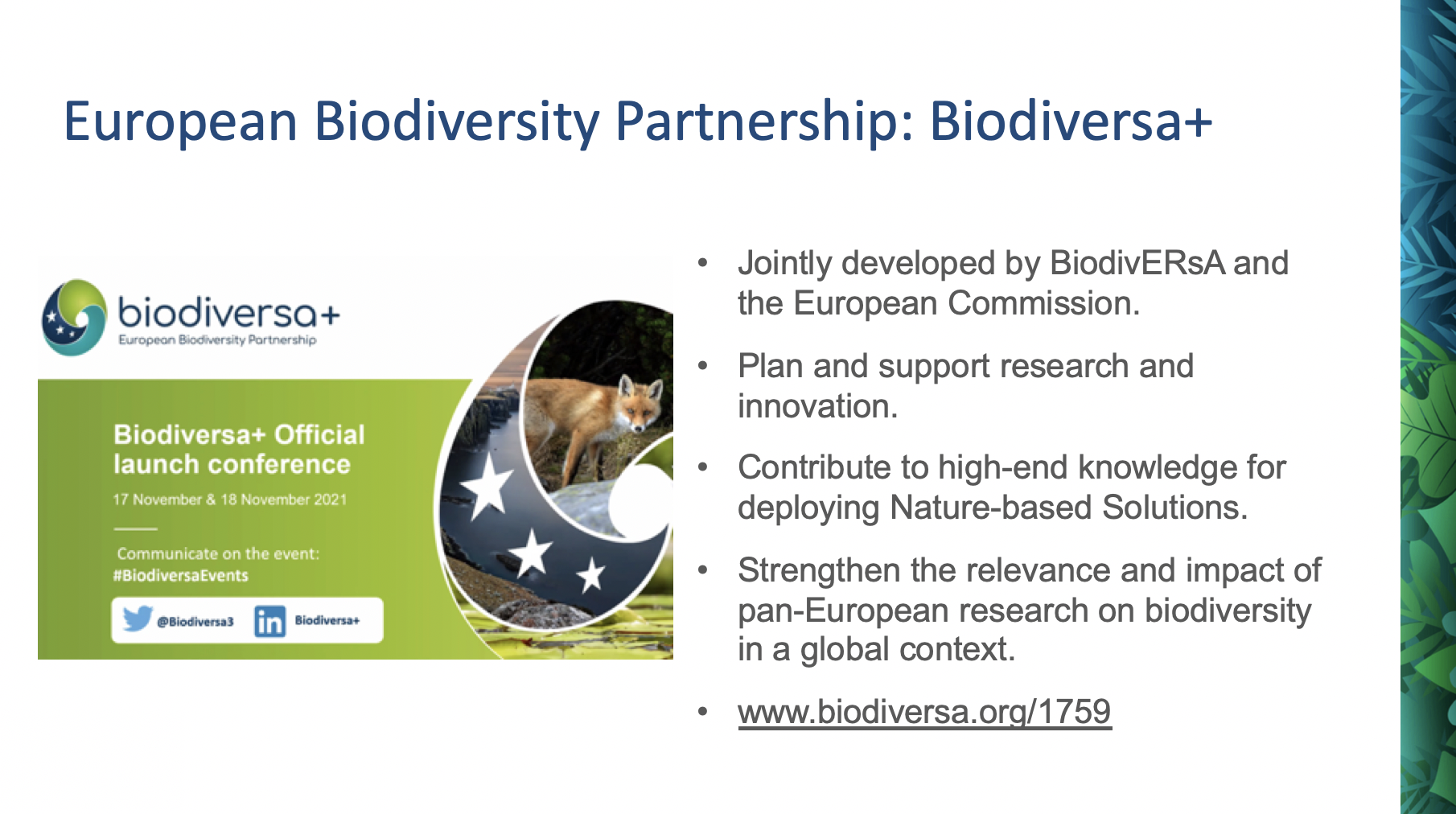
In March 2021, 26 Heads of State, the Director-General of the WHO and the President of the European Council, called for the development of an international treaty on pandemic prevention and preparedness. The World Health Assembly, the WHO decision-making body, will start to discuss this potential international pandemic treaty next week in Geneva.
Dr. Frank Vandenbroucke, Belgian Deputy Prime Minister and Minister for Social Affairs and Public Health, stated that the Belgian Government supports the development of such an international treaty on pandemic prevention and preparedness.
Ms. Els Martens, from the Belgian Federal Public Service Health, Food Chain Safety and Environment, highlighted the importance that such a treaty aligns with the One Health approach and addresses prevention at source.
The most cost-effective approach to pandemics is avoiding pathogen spillover to humans in the first place. Efforts must align and converge to significantly reduce the risk of pathogen spillover from animals to humans well before they become local outbreaks, epidemics, or global pandemics.
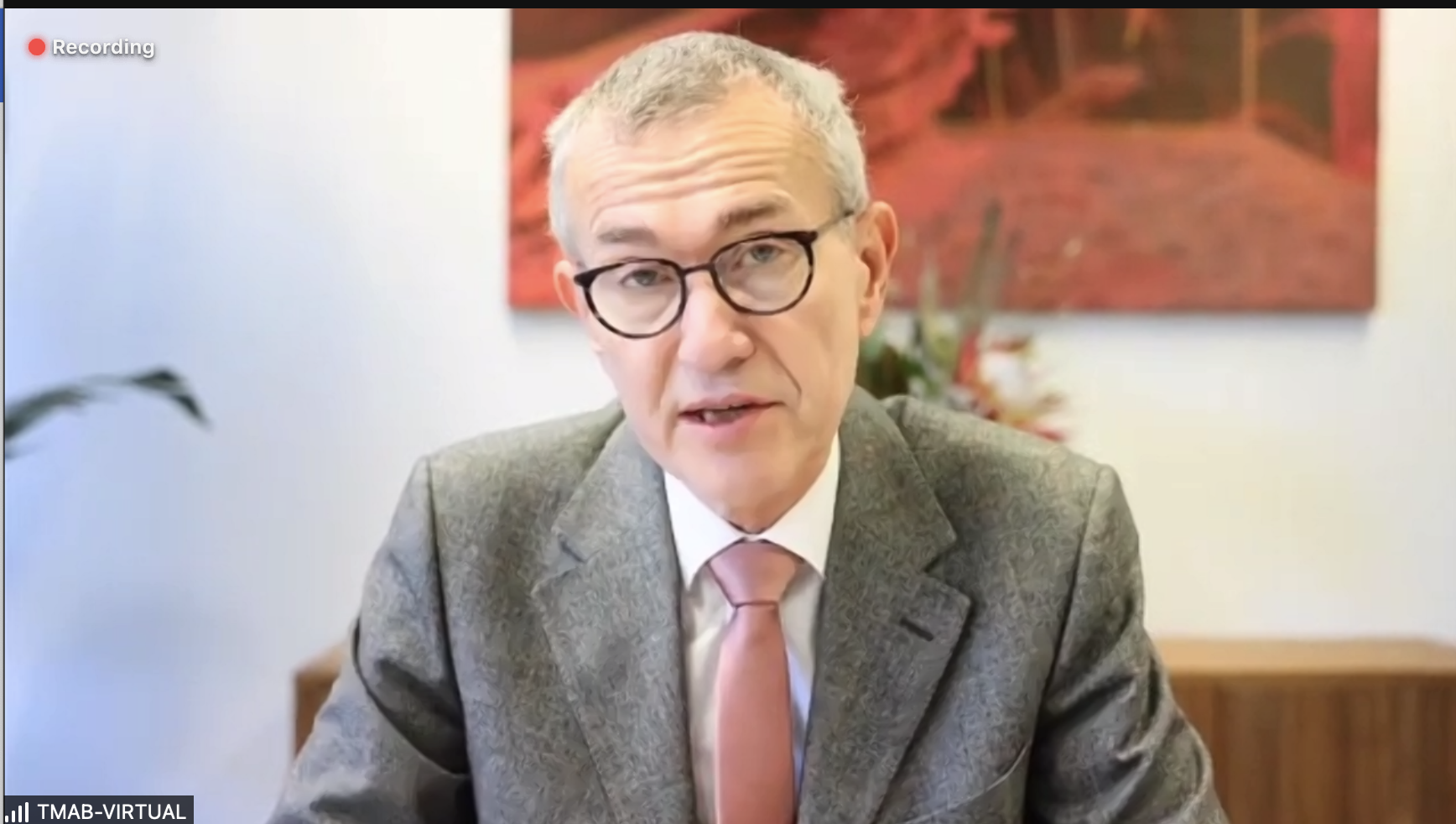 Dr. Frank Vandenbroucke, Belgian Deputy Prime Minister and Minister for Social Affairs and Public Health, speaking at the Belgian One Health Conference
Dr. Frank Vandenbroucke, Belgian Deputy Prime Minister and Minister for Social Affairs and Public Health, speaking at the Belgian One Health Conference
READ MORE
Belgian One Health Network
BEOH Conference 2021
EU Biodiversity Strategy and Pandemics
WCS Recommendations to Reduce Pandemic Risk